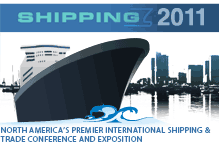
Freshly Minted – October 14, 1999
HIGH YIELD
It has been a difficult quarter in high yield. The lack of liquidity that began in August has continued to persist, with only slight improvement in September.
The new issue market for high yield bonds has been extremely challenging. The big news on the shipping high yield front is that SeaContainers priced a $115 million 144A deal to yield 11%. BankBoston and Lazard arranged the deal, which is the first maritime-related deal to get done since Millenium came to market in August of 1997. We discuss the deal in greater detail below.
Elsewhere, one deal priced yesterday, Iasis Healthcare, an operator of acute care hospitals. The $230 million deal was rated B3/B- and was priced at 13%, 50 basis points wide of price talk. Forward calendar stands at $1.7 billion with no more deals due to price this week. In both bank and bond markets, borrowers are getting less and paying more as they scramble for “dry powder” to begin Y2K. US stocks dropped again yesterday. Since August 25th, the Dow Jones Industrial Average is off 9.7% and the 10-year treasury stands at 6.11%. See our indices below for details on the performance of individual shipping securities around the world. Continue Reading
Unlocking Pacific & Atlantic’s Option Value
by Kevin Oates
In recent months it has become apparent that the tone, if not the terms, of each shipping high yield bond restructuring will to a greater or lesser extent depend upon the proverbial “last done”. As a result we think the inevitable restructuring of Pacific & Atlantic will contain elements of the Golden Ocean and Ermis as well elements from the ongoing restructuring of TBS and Global Ocean.
In an attempt to avoid buying high and selling low, the trend in shipping restructurings at present is the exchange of original notes for a reduced quantity of new notes. In addition, bondholders take a high equity stake in the company, or preferred stock or both and management is given control and equity claw backs if certain goals are achieved.
Continue Reading
In Search of Ulysses
by Nicolai Heidenreich
The chance of bumping into a Greek ship owner in Henrik Ibsen Park, Trafalgar Square or Grand Central Station is less likely today then a year ago. After decades of having to go abroad to obtain financing, Greek shipowners have come to appreciate the comforts of home. Despite popular belief, there are still almost as many shipping banks in Greece as in London, and those that decided to stay in Piraeus and ride out the cycle are now very active. Pricing terms are going the way of the owner and except for very large syndications, the owner’s creditors will be Piraeus based banks, either foreign or domestic, making dialogue quite easy. With information travel time now instantaneous, proximity of banker to borrower is no longer simply advantageous or convenient; it can also be essential for some deals.
Continue Reading
A Longer View on High Yield for Shipping
by James L. Grubbs, Managing Director, Citibank N.A.
I have been asked to give you an update on the capital markets for shipping issuers, with particular emphasis on the high yield bond market. Last year when I spoke at this conference I delivered what I considered to be a fairly somber assessment of the future of the high yield market for shipping issuers. To my surprise, it turned out that I was considered an optimist for even believing there was one.
At last year’s conference I predicted that there would be another high yield shipping bond issue within six months. Six months came and went with no shipping bonds. Last Spring I spoke at another ship finance conference in Monte Carlo and again I made the same prediction. It hasn’t quite been six months yet, so the jury is still out. However, while there likely will be no shipping bonds issued in the next few weeks, I can assure you that there will always be another conference, and if I am fortunate enough to be invited to speak, I will make the same prediction again. Who says consistency is the hobgoblin of small minds?
Continue Reading
Cleaning up Credit Committees
With many banks having had fingers burnt over the past couple of years in the Greek shipping market, there is a general requirement for more transparency of financial information. We believe that in addition to increased financial transparency, if banks lending to the Greek market extend disclosure requirements as well to vessel condition, management efficiency and casualty history, the obvious will occur. Quality companies will enjoy a closer, more trusting relationship with their banks and questionable companies will either clean things up or eventually go out of business.
While the following article focuses on ship financing in the Greek market, we believe that most of what is discussed can be applied in other shipping markets also. We also note up front that it is fair to exclude corporate shipping companies from certain, though not all, of the views expressed below. Such companies produce audited financial accounts and are more transparent than the traditional single purpose structure practised by most Greek ship operating groups, both large and small. To be noted with caution, however, is that many shipping companies use “Cost of Assets less Accumulated Depreciation” on the asset side of their balance sheet. Continue Reading
Don’t Always Bank on Your Banker
“Been there, done that” may be not be an unfair assessment of fair weather ship finance. Tales about the current industry despair count casualties and draw inevitable comparisons to the mid-1980s. This time around its departure of prominent names like Barclays, Credit Lyonnais-Piraeus and Paribas leading a broad retreat that has witnessed a thinning of the ranks of lenders / investors to shipping by almost twenty percent in the past two years. A decade ago the story was the same, only the frame of reference then was the 1970s collapse in shipping caused by the first oil shock, and names like Ansbacher, Kleinwort Benson and Warburg were heading up the run for cover. Given the time it takes to assemble a credible ship finance department and gain, as opposed to buy, a respectable market presence, it’s now difficult to believe the enthusiasm with which some of the newcomers to ship finance dove in with scant thought to depth. Does money drive shipping or does shipping drive money? It’s a question with no clear answer. Continue Reading
Stena Line Bonds: A Better Deal Than Duty Free
by Matt McCleery
At a price of 74, a yield of nearly 17% and unencumbered asset coverage of about 2x, we think Stena Line’s $300 million in 10.625% notes due 2008 might well represent one of the best opportunities in the shipping high yield market. In the following analysis, we’ll tell you why we think that if the company proves in the next two quarters that it can cope with life after duty free, these bonds may move back up into the low 90s.
As we see it, there are two reasons for the decline in price of Stena Line bonds. The first reason is the company’s very poor 1998 result. The second reason is uncertainty about how the company will look in the post-duty free era. Our executive summary is that a) 1998 was poor for non-recurring reasons and b) early indications are that the company will be able to manage post-duty free. We will take each of these points in turn.
Continue Reading
Sea Containers Ltd.: Forging Forward with Fast Ferries
by Geoff. Uttmark
Follow corporate smoke far enough and long enough and it’s a pretty sure bet that one of two things will be discovered: either a group of senior executives doing a poor impersonation of a fire brigade, or a very cool management team calmly wafting away the gun smoke of a well-aimed rifle shot as the next target is contemplated. We saw the wisp of smoke left by London based, NYSE listed Sea Containers’ (symbol SCRA) acquisition earlier this year of New York harbor commuter ferry operator Express Navigation. Tracking included personal interviews on both sides of the Atlantic to learn what this minuscule $5 million acquisition by a $1.27 billion in sales behemoth might signal for the company and industry.
Sea Containers’ management is understandably circumspect at this early juncture of their first foray into the North American ferry market. We can, however, confirm for our readers that contrary to waterfront scuttlebutt, the Express Navigation deal was no casual “throw in” as part of the purchase by Sea Containers of other, larger Holyman, Ltd. assets in Europe. We know this because we searched for and found the smoking gun:
“Sea Containers is seeking to acquire an existing ferry business in the Northeastern US to bring the benefits of the fast ferry to passenger and car travel in this densely populated region.”
- James B. Sherwood
President, Sea Containers
AGM 7 June 1994 Continue Reading
FERRY ROUTE PROFITABILITY: Geek Speak vs. Banker Babble
Prologue
“We needed an article on the Greek ferry market, not the geek ferry market!” growled the new publisher of Marine Money. The engineer cum writer had no defense but to invoke higher authority: “The Greeks we will always have among us. God must love Greeks.
Just look at all those ships in the world fleet, so many flying blue and white. But ferries, even Greek ferries, are fewer and geeks are maybe an endangered species once computers figure out how to ‘do it’ themselves. Anyway, I thought you said ‘geek’!” Eccentricity lives at magazines in the DMZ between rewrite time and publishing deadline. The new publisher considered. Geeks were techno-nerds who made incarnate the dreams of high-minded owners and deal-driven bankers. They were the root source of innovation, if not necessarily the instigators or implementers of it. The pages of Marine Money and every other Marine something or other would be the Dead Sea without geeks. So if ponderous, precise geek speak risked boring the readers to death, then so did blithe banker babble proffer the prospect of dying penniless. “We need pages, we’ll run it,” was the discussion ending pronouncement. “Clearly not a cover story, not a headline, maybe not even a byline,” reflected the writer. “But geeks count too, especially wins!”
Continue Reading
Ferries: A Niche of One’s Own
by Matt McCleery
Our pricing structure is set according to what we perceive the market is prepared to pay, as opposed to our operating costs.” I read the words, attributed to Olive Glass, Marketing Director of Red Funnel Ferries, on a recent flight to London, and exhaled the word “Amen!” with such evangelical verve that the fearful woman sitting next to me moved one seat further away.
The woman, who had defensively lowered the arm rest, could not possibly understand how sweet the thought of pricing control is to someone in the bulk shipping business. An industry in which vessel operators and shipyards value their goods and services using the self-defeating “cost minus” pricing structure – a business in which charterers and owners swarm around “last done” like moths on lightbulb, affirming the three rules of bulk shipping; price, price and price. She could not empathize with an industry whose bankers live and die with every unpredictable tick of the global GDP.
Continue Reading







